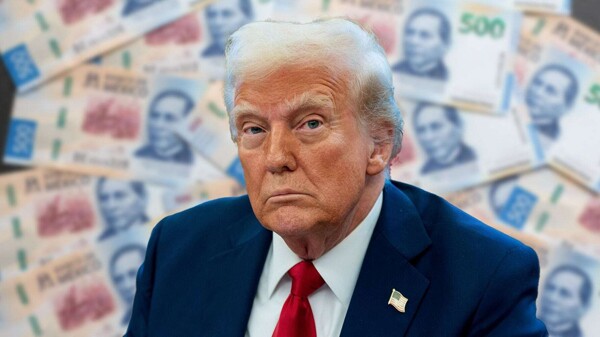
The president of Mexico, Claudia Sheinbaum, expressed her stance on the threat from the President of the United States, Donald Trump, to impose tariffs of 25 percent on Mexico and Canada starting February 1st. Sheinbaum stated: 'We are going to wait,' but 'we have plan A, plan B, plan C for whatever Trump decides regarding his tariffs.'
Sheinbaum highlighted that her government maintains a dialogue table with Washington, where migration and security issues are discussed. In this regard, she noted that agreements have been reached concerning the repatriation of nationals and other migration issues, always respecting sovereignty and human rights. Additionally, the president reaffirmed that they are based on four fundamental principles in their conversations with the White House: shared responsibility, mutual trust, collaboration, and respect for sovereignty.
On his part, the Secretary of Foreign Relations of Mexico, Marcelo Ebrard, warned about the possible negative repercussions that the imposition of tariffs by the United States could have. Ebrard mentioned that American consumers could be affected in final products such as cars, computers, televisions, and refrigerators, with higher prices, reduced product availability, and potential disruptions in supply chains.
Furthermore, it was emphasized that fruits, vegetables, meat, alcoholic beverages, cars, electronic products, household appliances, and medical equipment would be some of the products that would experience a price increase. It was projected that border states and cities with high consumption of Mexican products, such as California, Texas, Florida, and Arizona, would be the most affected by the measure. Ebrard pointed out that since Mexico is the main supplier of cars and auto parts in the United States, around 12 million families in that country would see an increase of $10.427 billion in their expenses, generating inflationary pressures.













